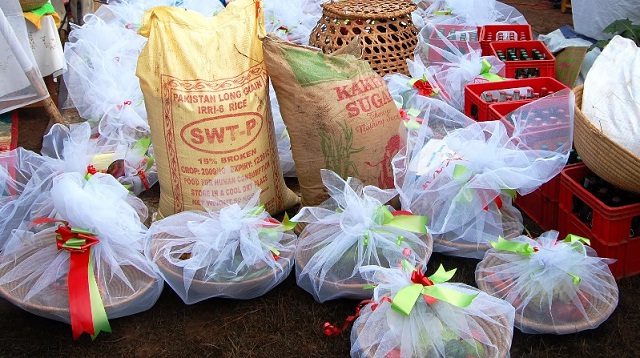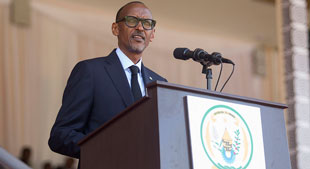
Kampala, Uganda | ALEXIS BIKORIMANA | Rwanda’s marriage customs are facing a test because of current rapidly changing norms. The traditional practice where young men intending to get married were expected to work hard and pay bride-price to their betrothed parents could soon become history in some parts of the country.
In Nyamasheke district, Rwanda’s Western Province, this centuries-long culture is facing a litmus test as a reverse practice emerges; of brides-to-be paying dowry cash to prospective husbands.
Bizarre as it may be, the practice has a following. But it has also faced strong resistance with many young women and families saying the unusual culture may affect relationshipsand is recipe for disaster.
Many resident in the district say the strange practice has become ‘culture’ in Nyamasheke,with girls being tasked to pay a ‘token’ of between Rwf300,000 and Rwf1 million depending on their social status.
MarienneNyirangiriye, a resident of Nyamasheke says many families cannot afford this money and she points at a woman in the neighbourhoodwho failed to marry because she could not part with more than Rwf400,000 (an exotic heifer costs over Rwf300,000).
According to Nyirangiriye, those that manage to struggle and raise the dowry are left in uncertainty and risk slipping into poverty.
“They sell off their properties, including land and domestic animals, among others,” she says.
In past being beautiful, hardworking, and humble werethe key requisite for girls to charm themselves into a man’s heart and eventual marriage. But this has since changed, at least in Nyamasheke, and no matter how beautiful or hardworking you are, if you have no money, the district’s eligible bachelors will not notice you.
Most human populations have an equal number of men and women. But in Nyamasheke, there are more women than men at 51.8% to 48.2%, according to figures from Rwanda’s population and housing census conducted in 2012. The scarcity of men could be contributing to the emergence of the dowry culture. Rwandal’s population, generally, comprises 49.1% males and 50.9% females.
Fight bizarre practice
Nyirangiriye calls on Rwandans; especially in this mountainous district, to fight the practice she says is not right and could lead to exploitation of girls and poor families that want their young daughters to find husbands.
Men can also take advantage and make it a business besides the unusual practice being a root cause of domestic violence among such couples.
“We must protest against this culture that’s coming up in some parts of Western Province because it may be asource of family conflicts. For example, a friend of mine paid dowry to get married,but was sent back home a few days later because she hadn’t carried a mattress as party of dowry,”explains Nyirangiriye.
She says girls are selling their inheritance to be able to pay dowry, noting that this negatively impact their siblings and is a “sure road to poverty”.
However, some parents support the ‘new norm’, saying that it is away through which girls contribute to the new families.
“This is good because each one of the couple will feel comfortable as they will be supporting each other,” says Daphrose Nyiraneza.
However, Nyiraneza suggests that there should be an organised and recognised procedure through which both sides should contribute and not only forcing young women to pay dowry regardless to their financial status.
 The Independent Uganda: You get the Truth we Pay the Price
The Independent Uganda: You get the Truth we Pay the Price


